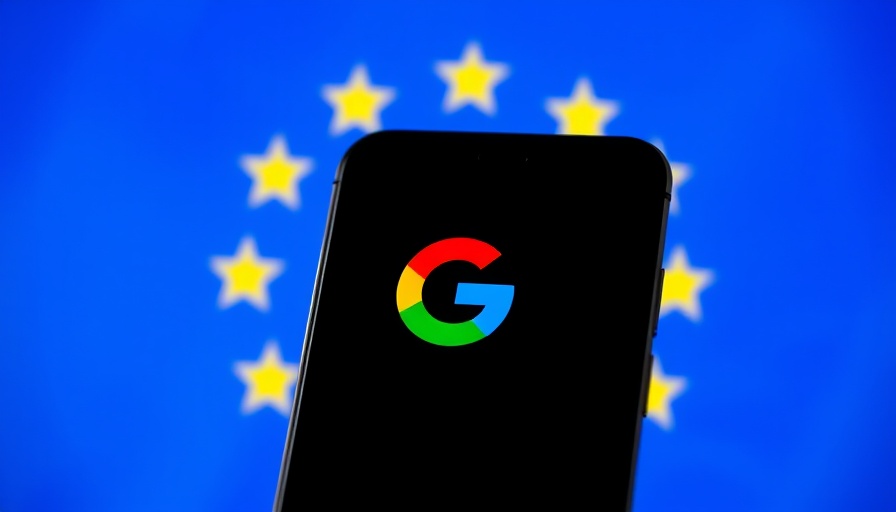
EU Takes a Stand: Fining Google Over Adtech Practices
This week, the European Commission announced a significant fine of €2.95 billion (approximately $3.5 billion) against Google for antitrust violations linked to its advertising technology practices. The ruling underscores the EU's ongoing scrutiny of major tech companies and their market behavior, particularly regarding how they favor their own services. Google's case illuminates necessary discussions around competition, market monopoly, and consumer trust.
Understanding Google's Dominance in Digital Advertising
According to the Commission, Google found to have engaged in unlawful conduct by favoring its own advertising exchange, AdX, while disadvantaging competitors in both its ad server and ad-buying tools. This self-preferencing practice undermines the principle of fair competition and raises concerns about how digital markets operate. With Google holding significant shares of the online advertising market, the ramifications of this ruling extend far beyond the tech giant itself, touching the livelihoods of countless publishers and advertisers reliant on fair ad placements.
Implications for the Future of Digital Markets
The fine is the second-largest antitrust penalty imposed by the EU, trailing only behind the $5 billion fine levied against Google in 2018. This recent ruling not only affirms the EU's commitment to regulating big tech but also sets a precedent for future enforcement actions. As the EU continues to tighten regulations, can we anticipate further scrutiny towards other tech giants like Facebook or Amazon? Labeled as oppressive by some, these regulations may also be vital in leveling the playing field for smaller companies striving to compete in the global market.
The Response from Google and the Broader Market
In response to the fine, a Google spokesperson announced plans to appeal the decision, denying any anti-competitive behavior. “There’s nothing anti-competitive in providing services for ad buyers and sellers,” the spokesperson stated. This sentiment contrasts sharply with that expressed by EU officials, who insist that fair competition ensures trust and integrity within digital marketplaces. With many alternative advertising platforms emerging, the argument for Google’s market practices becomes an intriguing discussion point. How effectively can Google justify its position while adhering to evolving regulatory standards?
The Political Dimension: U.S. Reactions
Moreover, the fine has evoked reactions beyond digital marketing circles. U.S. President Trump expressed his discontent via social media, emphasizing what he sees as excessive punishment on American companies like Google and Apple. This unanticipated criticism from the highest levels of American leadership highlights the complexities of international relations regarding commerce and technology. How will these sentiments shape future U.S.-EU trade negotiations, particularly in the tech sector?
A Market Shift: What Businesses Should Prepare For
As the landscape of digital advertising continues to evolve, businesses must adapt to new regulations that promote fair competition. Marketing managers and business professionals should prepare for changes that may arise from this ruling, including potential adjustments in digital advertising strategies and reconsideration of partnerships with ad tech providers. Understanding the ramifications of these antitrust regulations will prove vital in navigating the competitive advertising marketplace successfully.
Conclusion: Embracing Change in Digital Advertising
As the drama unfolds and Google's appeal progresses, businesses invested in advertising will be watching attentively. The fine is a potent reminder of the importance of fair practices in technology operations, encouraging companies to evaluate their stances on digital ethics and competitor relationships. By embracing transparency in their practices, businesses better position themselves to thrive within an increasingly regulated market.
If you’re a marketing professional or business leader, it’s time to reassess your strategies and ensure your practices align with regulatory expectations. The landscape is changing, and so should your approach to digital advertising.
 Add Row
Add Row  Add
Add 




Write A Comment